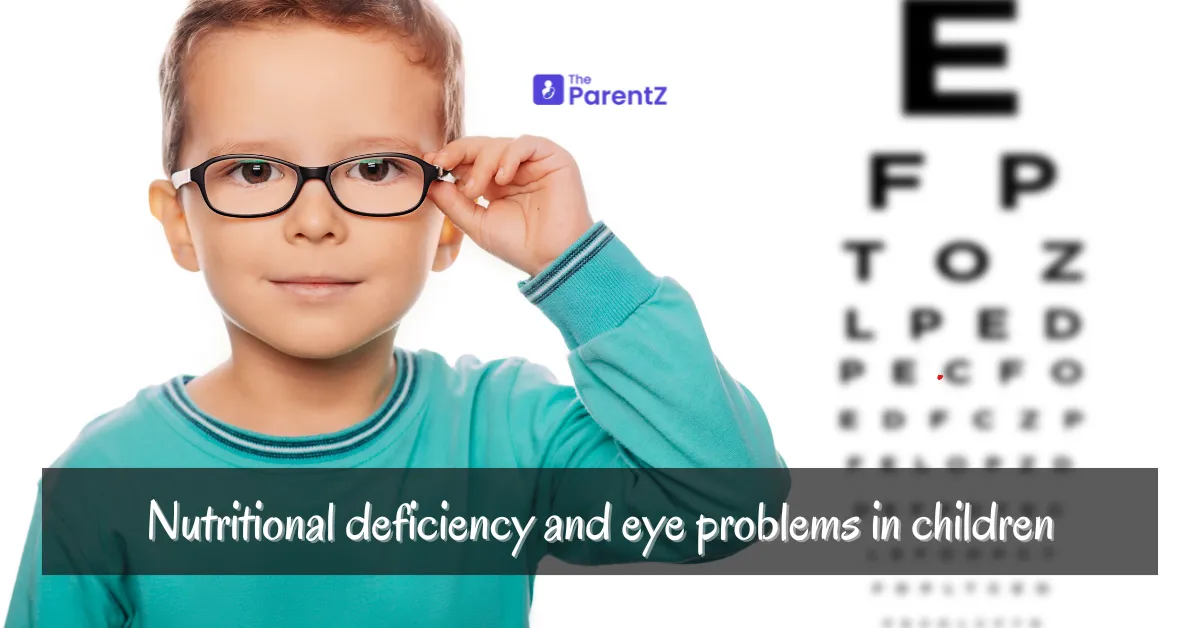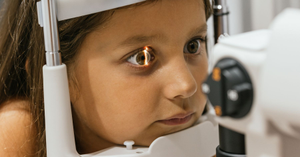Common Eye Problems in Children Due to Nutritional Deficiencies
Nutritional deficiencies can lead to a variety of eye-related issues in children, impacting vision and overall eye health. Some common problems include:
• Night Blindness: A lack of vitamin A can lead to difficulty seeing in low light conditions, known as night blindness.
• Xerophthalmia: Severe vitamin A deficiency can cause xerophthalmia, a condition where the eye fails to produce tears, leading to dryness, discomfort, and potential blindness if untreated.
• Refractive Errors: Deficiencies in omega-3 fatty acids and vitamin D may contribute to refractive errors like myopia (nearsightedness).
• Macular Degeneration: Though rare in children, insufficient intake of antioxidants like vitamins C and E may increase the risk of macular degeneration, affecting central vision.
Essential Nutrients for Eye Health
1. Vitamin A
• Role: Essential for maintaining the health of the cornea and aiding night vision.
• Sources: Carrots, sweet potatoes, leafy greens, and dairy products.
2. Omega-3 Fatty Acids
• Role: Important for retinal development and may help reduce the risk of refractive errors.
• Sources: Fatty fish (such as salmon and tuna), flaxseeds, and walnuts.
3. Vitamin C
• Role: Antioxidant properties help protect eye tissues from oxidative stress.
• Sources: Oranges, strawberries, kiwi, bell peppers, and broccoli.
4. Vitamin E
• Role: Works alongside vitamin C as an antioxidant to support eye health and reduce the risk of macular issues.
• Sources: Nuts, seeds, spinach, and vegetable oils.
5. Zinc
• Role: Plays a role in transporting vitamin A from the liver to the retina to produce melanin, a protective pigment.
• Sources: Meat, shellfish, legumes, nuts, and dairy.
6. Lutein and Zeaxanthin
• Role: These antioxidants are concentrated in the retina and help filter harmful light.
• Sources: Spinach, kale, corn, and eggs.
7. Vitamin D
• Role: A deficiency in vitamin D has been linked to an increased risk of myopia and may impact overall eye health.
• Sources: Sunlight exposure, fortified milk, and eggs.
Prevention and Tips for Parents
• Encourage a balanced diet with a variety of fruits, vegetables, and whole foods to provide essential nutrients for eye health.
• Include foods rich in vitamins A, C, and E, as well as omega-3 fatty acids, to support vision.
• Limit screen time to reduce eye strain and encourage regular breaks during activities that require prolonged visual focus.
• Schedule regular eye check-ups to monitor and address any early signs of eye problems.








Be the first one to comment on this story.